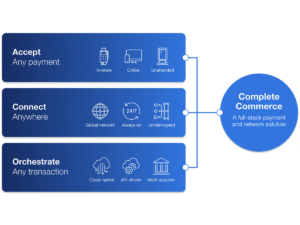In the US, the Secure Telephone Identity Revisited (STIR) and Signature‐based Handling of Asserted Information Using toKENs (SHAKEN) has become the Federal Communications Commission’s (FCC) standard framework for mitigating scam calls by authenticating displayed caller names and numbers. While international policy makers and regulators grapple to find the right solution for their markets, we have extended our coverage and visibility beyond the US and Canada to closely monitor global call scams and trends.
Keep reading this blog to find out more about five of the most common international scams in 2024 and the increasing use of Artificial Intelligence (AI) by bad actors.
1. Amazon Impersonation
With its global network, Amazon and other online retailers present a target-rich environment for fraudsters. More scammers are calling unsuspecting consumers with messages such as: “We have detected suspicious activity on your Amazon account” or warnings of account suspension, promises of refunds or offers of rewards and free gifts.
2. Tax Scams
More businesses, contractors and supply chains are impacted now more than ever by international tax laws and regional regulations. In the UK, HM Revenue and Customs (HMRC) has received more than 130,000 reports about tax scams in the last year. The most common scams are based around offerings of fake tax rebates.
3. Wangiri One Ring Scams
The Japanese phrase for “one ring and drop”, wangiri scams reportedly originated in Asia and have been in the US for a few years before now emerging in Europe. They involve an unsuspecting consumer receiving a call from an unknown number, likely an international line made to appear local, but the call ends after one ring. This may happen multiple times over several days, tempting a call back. The trick is that the returned call goes to a spoofed international number that charges back fees.
4. Bank Scams
Bank impersonation scams are becoming more common, ranging from warnings of “unauthorized activity” to threatening to freeze a customer’s account. Generally, scams around banking are geared toward getting into accounts and gaining private, personal information for financial gain. Earlier this year, the Australia Competition and Consumer Commission’s (ACCC) Scamwatch issued a warning to HSBC customers regarding scam calls and texts that appeared to be from the bank.
5. Package Delivery Scams
With a high-volume of package delivery traffic all around the world, everyone is now used to receiving tracking updates and delivery notifications which has provided an opportunity for fraudsters. Package scams are prevalent across Europe, with the most common being a call or text indicating a package is ready for the recipient, but claiming they have to pay a fictitious additional charge for it.
The Increasing Use of AI Scams
We expect bad actors will continue increasing the use of AI models and tools to perform very sophisticated “deepfake” imposter scam calls and this will impact on a global scale. The scam that sparked major concern around the world was imitating US President Joe Biden, just before the New Hampshire primary election. With this technology, bad actors are also able to create very believable scam scenarios and phishing attacks. One of the most common tactics is designing AI models to simulate a person’s voice. Voice cloning is essentially when someone uses the recording of a person’s voice and uses AI to change or manipulate the message. Just a short audio message from a familiar-sounding source – especially from a loved one who appears to be in an emergency – is proving to be a lucrative technique and is now one of the most talked about scams globally.
It is best practice to never engage with unknown numbers and report phone numbers being used by scammers to your network provider. Stay vigilant, share information about scams with others and be sure to check out our monthly Scam of the Month page updates.
For more information about our Communications Market solutions, visit: tnsi.com/solutions/communications/
John Haraburda is Product Lead for TNS Call Guardian® with specific responsibility for TNS’ Communications Market solutions.
Call Guardian is a registered trademark of Transaction Network Services, Inc.






